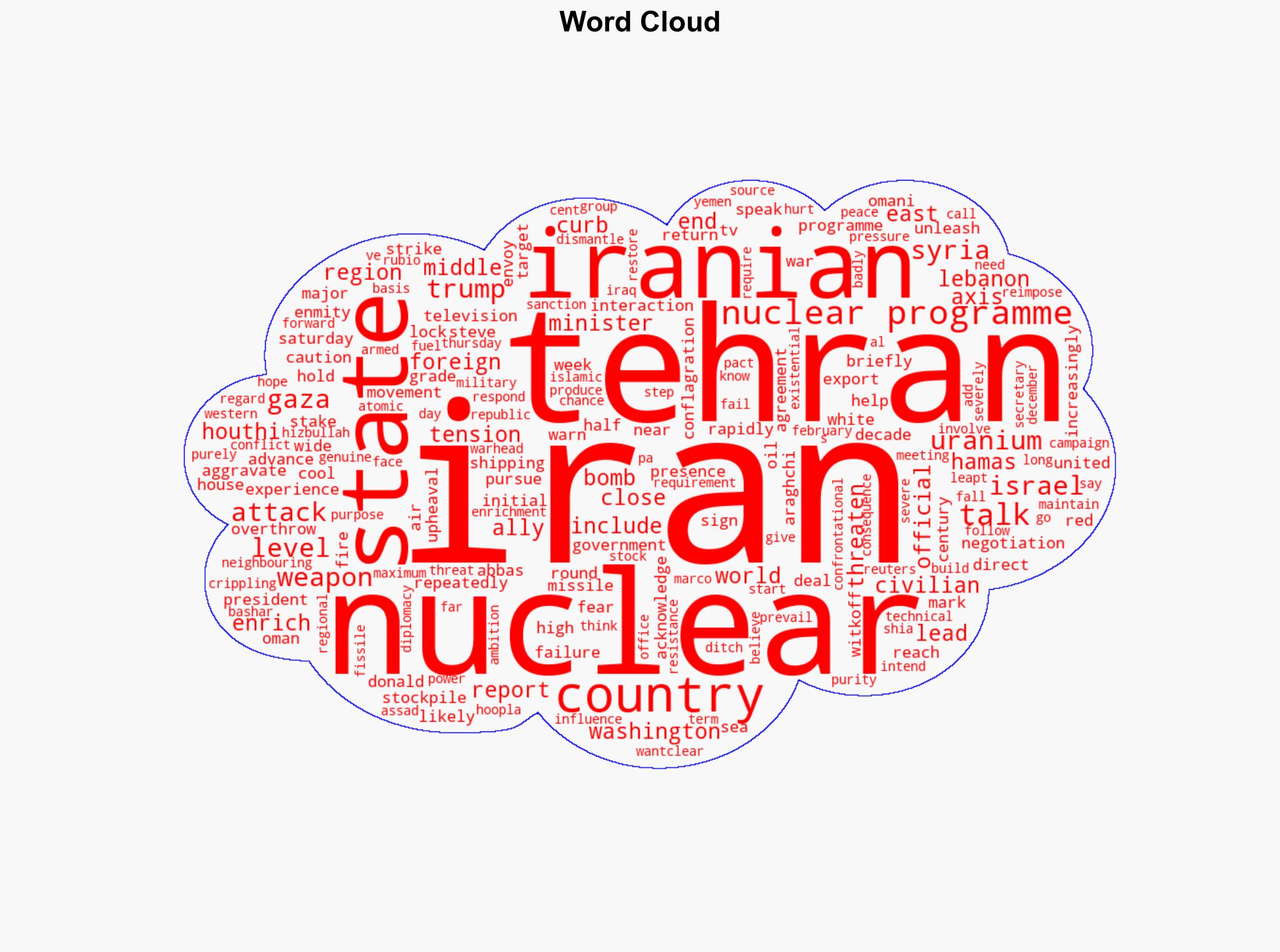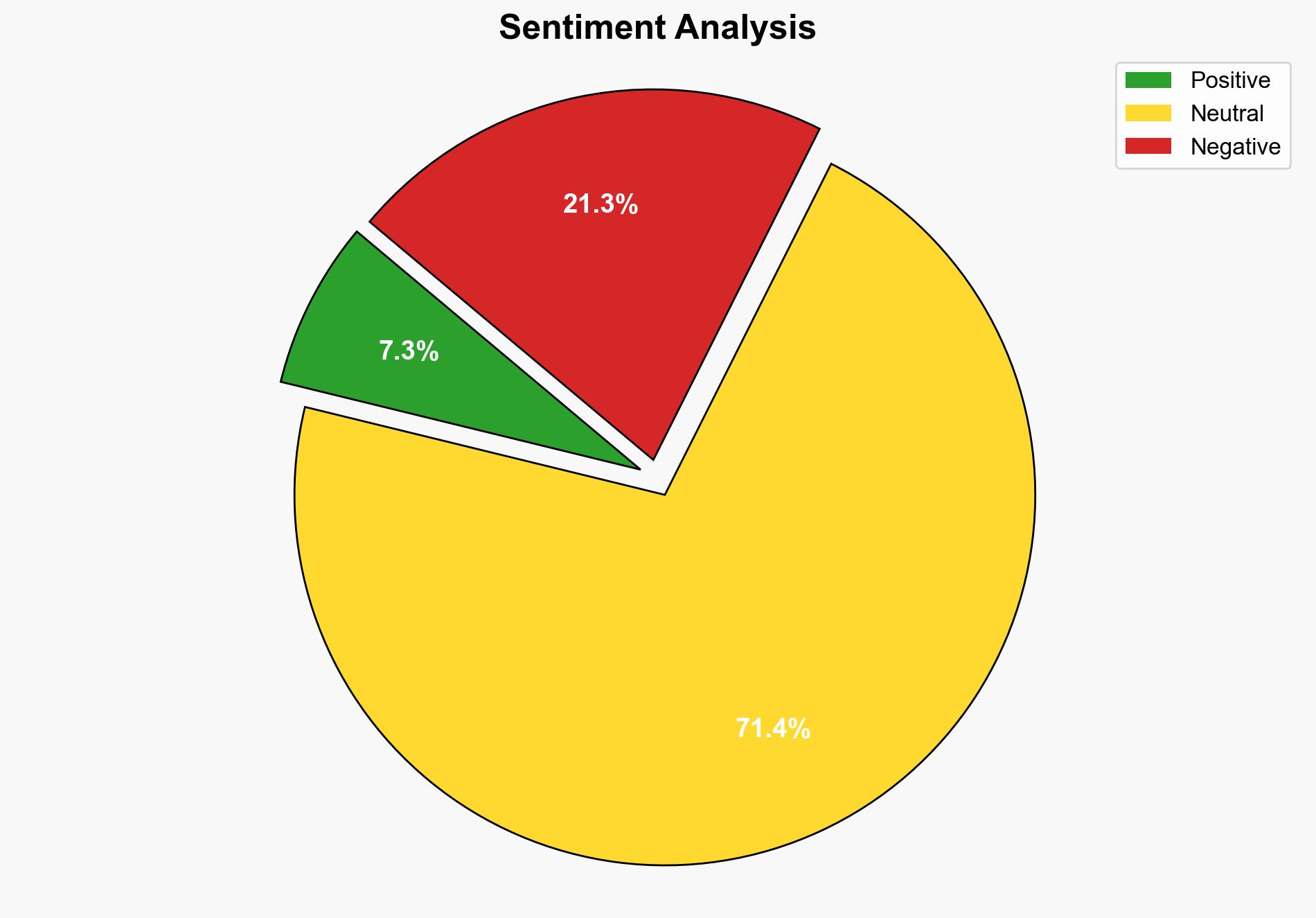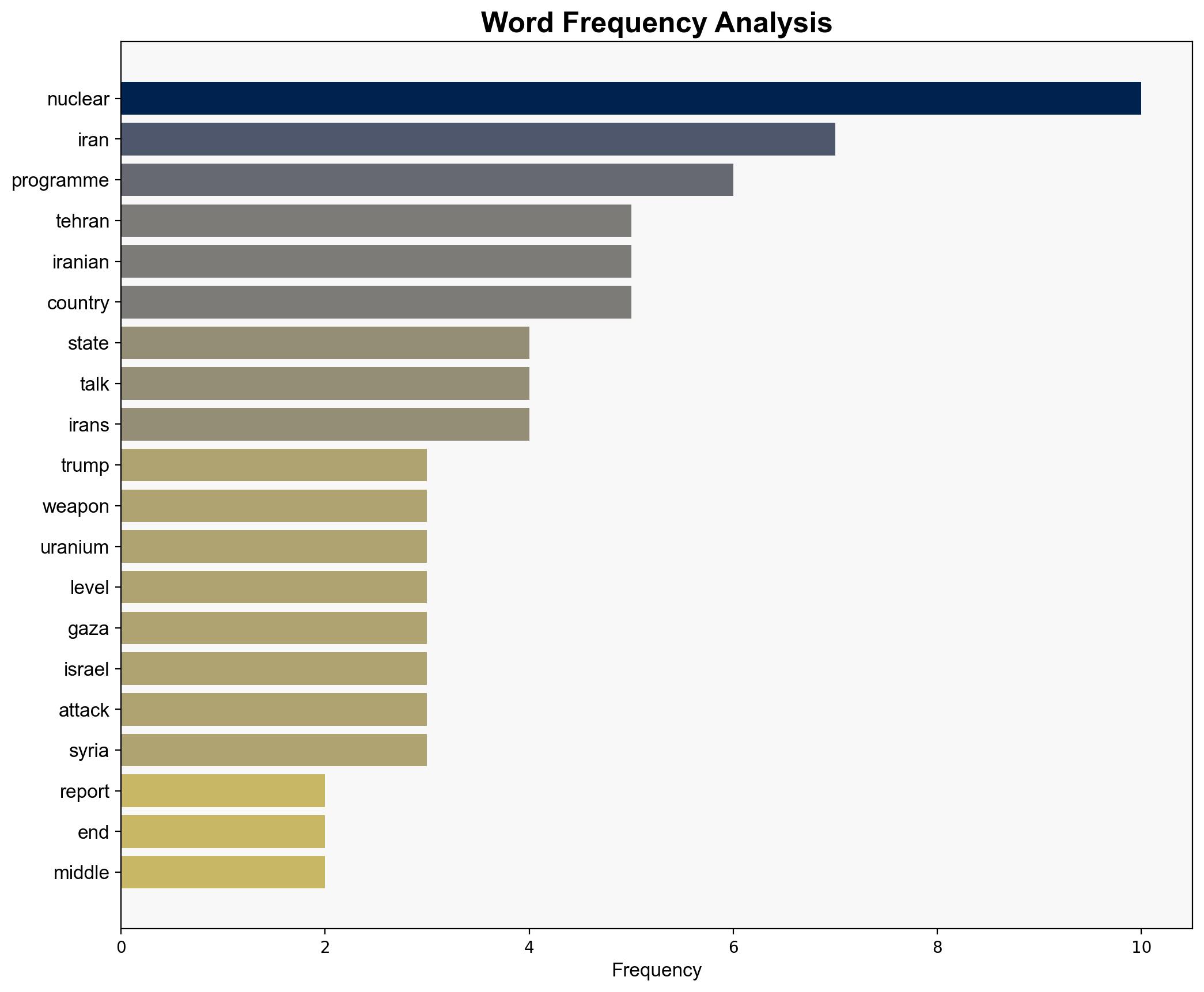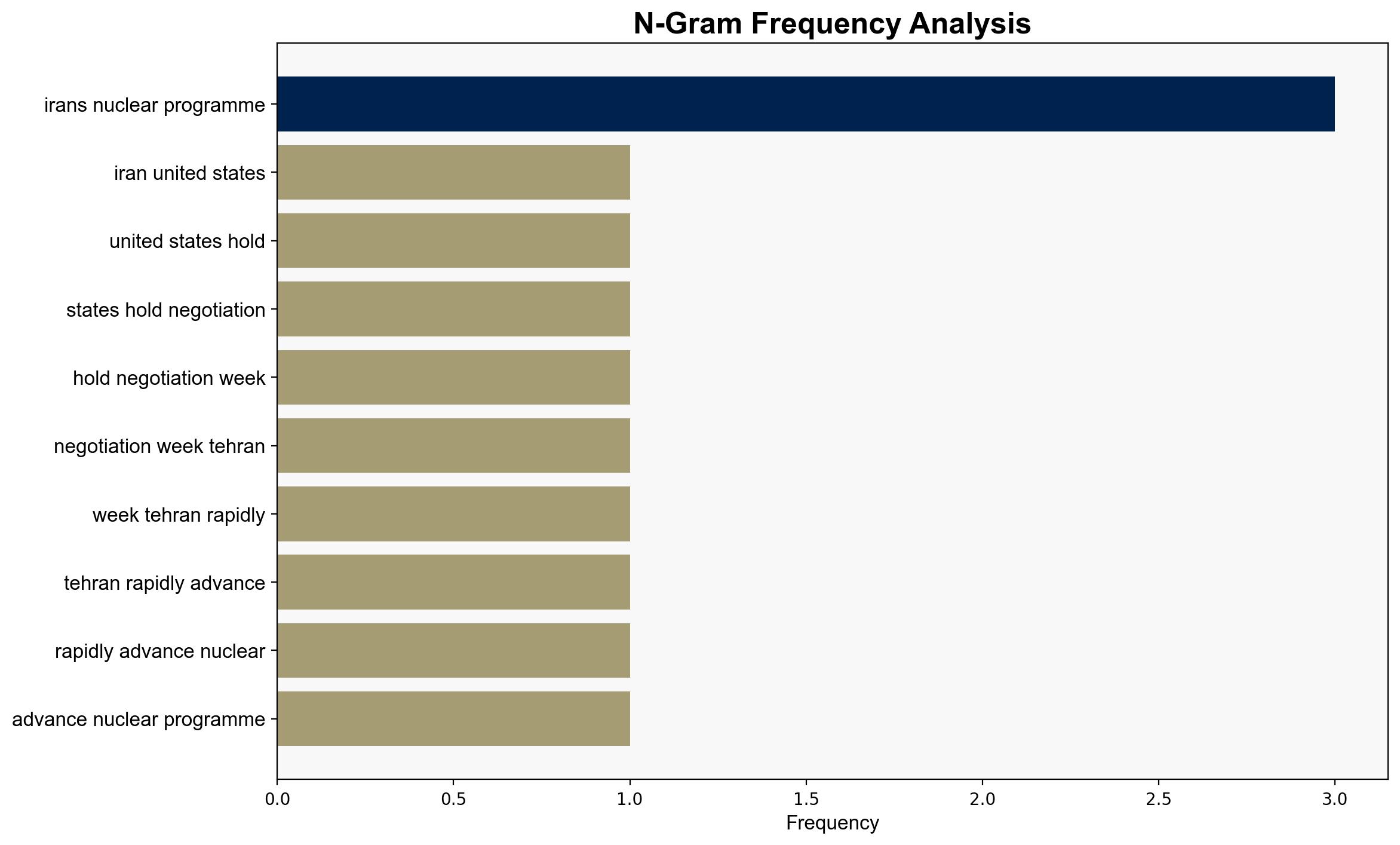Iran-US talks focus on nuclear programme regional de-escalation and prisoner exchanges – The Irish Times
Published on: 2025-04-12
Intelligence Report: Iran-US talks focus on nuclear programme regional de-escalation and prisoner exchanges – The Irish Times
1. BLUF (Bottom Line Up Front)
The recent negotiations between Iran and the United States mark a critical juncture in addressing Tehran’s advancing nuclear programme. While no agreement was reached, the talks indicate potential for de-escalation in a region fraught with tension. The involvement of key figures such as Steve Witkoff and Abbas Araghchi highlights the seriousness of the discussions. Immediate action is required to prevent further escalation and to explore diplomatic solutions.
2. Detailed Analysis
The following structured analytic techniques have been applied for this analysis:
General Analysis
The talks between Iran and the United States are pivotal given the current geopolitical climate. The discussions, held in Oman, represent a rare direct interaction between the two nations. The stakes are high, with Iran’s nuclear capabilities advancing rapidly and the potential for military conflict looming. The talks are further complicated by regional instability, including conflicts in Gaza and Lebanon, and tensions between Iran and Israel. The United States’ “maximum pressure” campaign and Iran’s uranium enrichment activities underscore the urgency of these negotiations.
3. Implications and Strategic Risks
The primary risk is the potential for military conflict if diplomatic efforts fail. This could destabilize the region, impacting global oil markets and international security. The advancement of Iran’s nuclear programme poses a direct threat to regional actors, notably Israel, and could trigger a broader conflict. Additionally, the presence of US military bases in the region increases the risk of retaliatory actions by Iran.
4. Recommendations and Outlook
Recommendations:
- Enhance diplomatic engagement with Iran to build trust and explore mutually beneficial agreements.
- Strengthen alliances with regional partners to present a unified front in negotiations.
- Implement technological measures to monitor and verify Iran’s nuclear activities.
Outlook:
In the best-case scenario, continued negotiations lead to a comprehensive agreement that limits Iran’s nuclear capabilities and reduces regional tensions. The worst-case scenario involves a breakdown in talks, leading to military conflict and regional destabilization. The most likely outcome is a prolonged negotiation process with incremental progress towards de-escalation.
5. Key Individuals and Entities
The report mentions significant individuals and organizations, including Steve Witkoff and Abbas Araghchi. Their involvement is crucial in shaping the direction of the negotiations and influencing the outcome of the talks.





